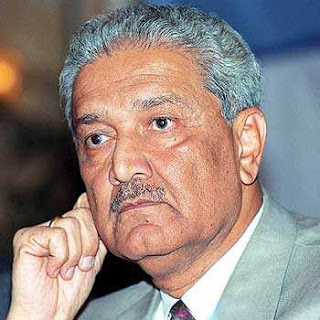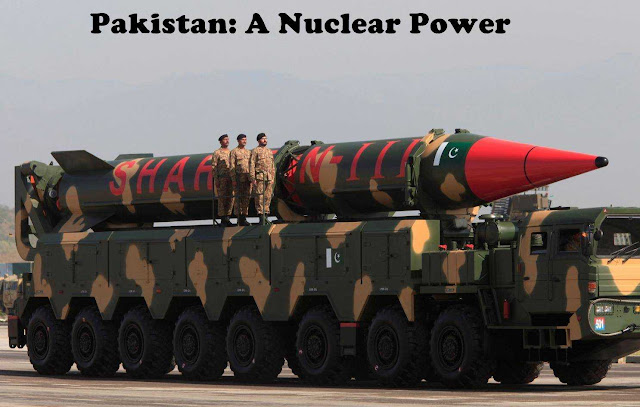How did Pakistan become a nuclear power?
Pakistan is one of the 8 nuclear power-rich countries in the world, and perhaps also a country which creates the greatest threat to the world. This thing is not hidden from anyone that Pakistan gives safe havens to terrorist groups on their land, which continue to attack India, Afghanistan, Iran on all sides.
Pakistan: A Nuclear Power
Pakistan's nuclear weapons program began in 1972, when Prime Minister Zulfiqar Ali Bhutto was in favor of being a nuclear weapon country. Bhutto once announced, "If India makes bombs, we may eat grass or leaves, even if we are hungry but we will make bombs for ourselves too."
Man Behind The Pakistan Nuclear Power
 Pakistan's nuclear weapons program began in 1976 under the leadership of Dr. Abdul Qadir Khan. Abdul Qadir Khan is also known as the father of the Pakistan Nuclear Program. Abdul has worked in Physics Dynamics Research Laboratory in Amsterdam from 1972-75, where he had gathered much important information about uranium. After this Abdul went to Pakistan with some confidential documents leaving the Netherlands. On returning to Pakistan, Khan Lab developed a uranium enrichment plant. In 1983, Khan was accused of stealing. After this Khan's name is also linked to the sale of nuclear designs and materials to North Korea, Iran, Iraq, and Libya.
Pakistan's nuclear weapons program began in 1976 under the leadership of Dr. Abdul Qadir Khan. Abdul Qadir Khan is also known as the father of the Pakistan Nuclear Program. Abdul has worked in Physics Dynamics Research Laboratory in Amsterdam from 1972-75, where he had gathered much important information about uranium. After this Abdul went to Pakistan with some confidential documents leaving the Netherlands. On returning to Pakistan, Khan Lab developed a uranium enrichment plant. In 1983, Khan was accused of stealing. After this Khan's name is also linked to the sale of nuclear designs and materials to North Korea, Iran, Iraq, and Libya.
With a doctorate degree from Catholic University, Khan began working at the Physics Dynamics Research Laboratory (FDO) in Amsterdam. It was a branch of the Dutch firm that worked with URENCO in Western Europe. Western European countries wanted to not rely on US nuclear fuel for their nuclear reactors, so Great Britain, Germany, and the Netherlands together formed a URENCO for the supply of enriched uranium in the 1970s. This fuel was used to make Hiroshima bombs.
Khan got a chance to spend 16 days in the most secretive area of the plant in 1974. They got the task of translating Centrifuge Technologies from German to Dutch. In these 16 days, Khan screwed that secretive piece of a factory. When a fellow asked him why he was writing in a foreign language, Khan replied that he was writing a letter to his family members. Another companion also saw Khan roaming around a factory in the factory, but he did not take it seriously.
Nobody knows what time Khan started the job of spying for Pakistan but he was the ideal choice for a detective. Khan's father was a teacher, and his grandfather was an army officer. Apart from this, his bitter memories in the past also made him a true patriot.
Born in Bhopal in 1935, the family of Khan had to leave Pakistan during India-Pakistan partition. That is why they used to say most, everyone kicks those people who have no country of their own. Khan also used to say that securing his life is more important than securing his country.
When the Dutch team later investigated, he did not find any proof that he was sent as a spy in the Netherlands. It seems that when India blew a peaceful bomb in May 1974, from that time Khan stole the documents of URENCO and started sending it to Islamabad.
In 1976, Khan left the Holand with his family and turned to Pakistan. Khan then resigned from the FDO.
Khan got the patriotism reward and in his name, AQ Khan Research Laboratories was opened. Western media called Khan a superstar, but he kept hiding this identity of himself. In 1990, Khan had said in a statement, "The research done in Kahuta is the result of our innovation and struggle. We did not get any technical help from abroad."
A report of the 1983 US State Department revealed that China has also helped in Pakistan's nuclear program and gave a full blueprint to Pakistan for a nuclear bomb. By 1984, Pakistan had been able to enrich uranium enrichment up to the level of arms. However, in the last years of the '80s, the work had progressed rapidly, and the reasons were: fear of India or Israel's strike and increased the pressure of the United States. Meanwhile, Pakistan continued to work towards its nuclear weapons program. In 1998 Pakistan finally took the first nuclear test. This test was in response to this year's Indian nuclear test.












0 comments:
Post a Comment